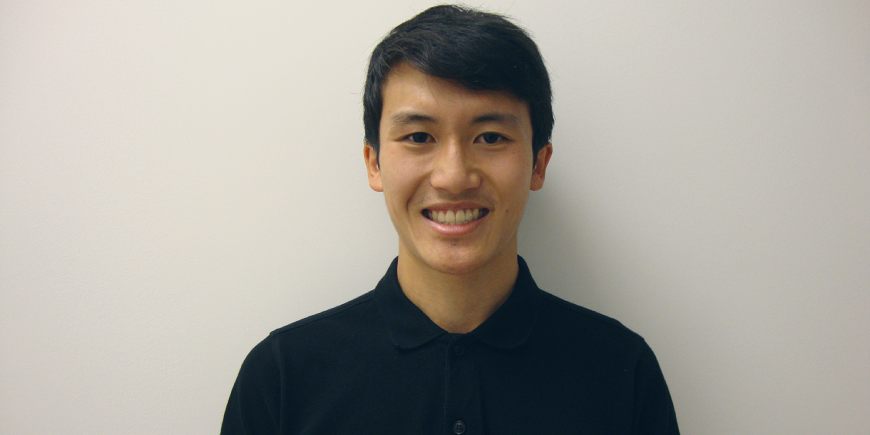
Working at Movéo
Having the right atmosphere is important on making a successful practice. Working at Movéo Sports and Rehabilitation Clinic has taught me how to take a holistic approach to treatment. You can know every muscle and treatment in the book, but if the client isn’t comfortable with how they’re being treated, they might not return. It is important to give the client an enjoyable experience where they feel valued and genuinely cared about. If the client feels that they can talk to you on a more personal level, there’s an increased likelihood that they’ll be more receptive to treatment suggestions.
Learning Outside the Classroom
Going to school, learning about the body and soaking up countless facts is one thing, but utilizing that knowledge in real life is another. You can learn the fundamental skills and techniques in school, but you can’t teach experience. It may sound cliché, but it couldn’t be truer. Experience helps you connect facts to create the bigger picture. More often than not, there are multiple intertwining elements that make a process work and experience helps you understand how things work in relation to other components. A co-op practicum is a wonderful opportunity for students to use their textbook knowledge and apply it a real world situation, something that is hard to replicate in the classroom.
Experience Establishes Rapport
What I quickly learned at Movéo was how essential building rapport between patient and therapist is. Rapport needs to be established early in the therapeutic process as it improves your chances of getting a successful result (Cully, 2008). Rapport sets the tone. A good rapport develops mutual trust and creates an environment where the client feels safe. To develop a healthy relationship, you should show empathy and understanding through strong communication. However, communication is more than being verbal, it is how you carry yourself, your body language and how explanations are delivered in a clear manner. People can make unconscious judgments from first impressions where little things such as smiling and using someone’s name can really make a difference. Creating trust is essential in a clinical setting. For example, the client is more likely to listen to a therapist’s suggestions and do the rehab exercises assigned to them if they trust them. Rapport keeps therapist and client on the same page so that both sides are happy in the treatment process. With that said, establishing rapport is not limited to a client-therapist relationship, but is essential for every occupation whether you are a lawyer, firefighter, entrepreneur, etc.
Experience Gives Confidence
In developing the client-therapist relationship, the client needs to be assured that they are being treated appropriately. Therefore, the therapist must be confident in their ability to re-assure the client that they are well looked after. The best way to gain confidence is by being in different situations where you can apply knowledge in practice. Whether watching an experienced therapist work or teaching a client a new exercise, it is gaining that understanding of what works and what doesn’t that gives confidence. As a therapist, confidence begins with how you deal with the client, with getting to know them from the first appointment. A good therapist should let the patient present their concerns, then help them prioritize what problem should be addressed first. Throughout the earlier sessions, the therapist should present a therapy plan appropriate to the client’s lifestyle that they are more willing to abide by. Working through the process and explaining why you’re doing what you’re doing will not only help instill the client’s self-confidence, but will also boost the therapist’s confidence in their own abilities. Having confidence in how you approach different situations in all occupations goes a long way as you encounter new people and new situations every day.
Final Words
Experience in any setting is important. This is especially true in a clinical setting where the classroom and textbooks don’t fully prepare you for how to be a good therapist. The co-op program has given me the opportunity to learn and practice what real professionals do every day. What accomplished therapists do really well is their ability to connect with their clients, whether it involves talking about their families, friends, athletics or work. The clients love coming back and their cheery smiles after treatment confirm that. I found it extremely valuable in being genuine because it helps encourage the clients to be active and continue with the treatment plan. Working at Movéo has given me a better understanding of what it takes to be a great practitioner and how important it is to establish rapport with those you treat.
References
Cully, J., Teten, A. (2008). A Therapist's Guide to Brief Cognitive Behavioral Therapy. Department of Veterans Affairs South Central MIRECC. Retrieved from http://www.mirecc.va.gov/visn16/docs/therapists_guide_to_brief_cbtmanual.pdf
Beyond the Blog
-
For more information, visit Movéo Sports and Rehabilitation Clinic's website!
-
Visit SFU's BPK co-op page for more opportunities like Brendan's!














